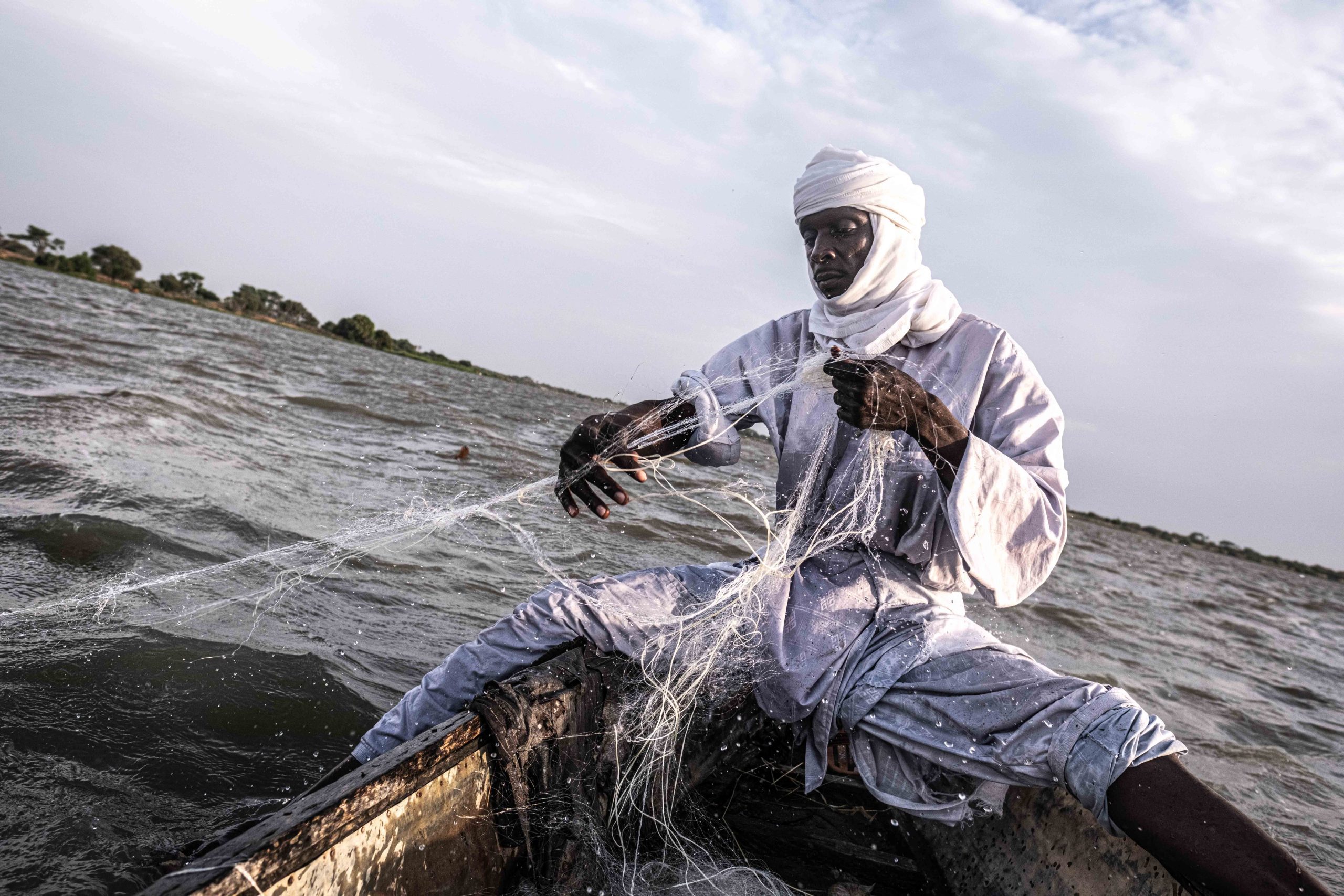Chad 2024 – New Lines Magazine, Afrique XXI, Nigrizia
“I still remember 2018, when I worked as a freight carrier,” recalls Alhadji, the village leader standing on the shores of Lake Chad near Bol, the capital of #Chad’s Lac region. “With my boat, I helped hundreds escape and start a new life here in Kaya.”
Alhadji has been at the forefront of welcoming thousands of Chadian and Nigerian refugees fleeing jihadist attacks. “We’ve found some balance, but it hasn’t been easy,” he adds. “Resources and fertile land are running out, yet more people keep arriving.”
Lake Chad is a striking example of the long- and short-term impacts of the climate crisis. Once a thriving hub for millions and a meeting place for diverse ethnic groups, the basin is now a hotspot for instability. Conflicts erupt between fishing communities, herders, and farmers as resources dwindle.
“We catch only a third of the fish I used to as a boy. Some species are gone,” shares Abdou, a fisherman. “And with Boko Haram attacking and kidnapping us, we’re trapped. Fishing is no longer sustainable, but what else can we do?”
While Boko Haram has weakened since its peak between 2015 and 2019, insecurity persists, especially in the borderlands between the four lake states. The lake’s maze of islands makes border control nearly impossible. In October, a jihadist attack claimed the lives of 40 Chadian soldiers near the Nigeria border.
Violence linked to militant Islamist groups surged by 25% in 2023-24, reversing the declines seen since 2020. However, Chad has made remarkable progress in curbing violent extremism not just through military efforts, but by leveraging the resilience and determination of its civil society.
In Bol, community-driven initiatives offer hope. Women’s groups assist Boko Haram victims in reintegrating. Youth theater troupes raise awareness about extremism. A local radio station broadcasts interviews with ex-jihadists, urging others to repent. Community leaders have also established de-radicalization and reintegration programs.
“The work to get these people back on track is long. When they come, they are still violent. De-radicalization takes time, but it’s possible with forgiveness,” says Abakar Mbami, Community Leader and Chairman of the Vigilance Committee in the Lac Region, Chad.
Near the town of Bol, Abakar runs a de-radicalization center for former Boko Haram fighters, with support from religious leaders, local authorities, and his community.
Abakar’s center, active for five years, has helped hundreds of repentants begin a new life. The process starts with safety and dialogue, broken into stages marked by symbolic gestures like burning the clothes they wore while with Boko Haram. These acts signify a break from the past and help initiate mental and emotional healing.
Once ready, former fighters are reintegrated into nearby communities, given jobs, or provided land to rebuild their lives. Mohammed, 43, who spent 11 years with Boko Haram, says, “Leaving was hard; I’m lucky to be alive.” Moussa, 35, fought with the group for seven years before defecting. “What we were doing wasn’t normal,” he says.
This story shows that we are talking about humans, not monsters. De-radicalization and reintegration are possible alternatives to military action in the fight against extremism.







































